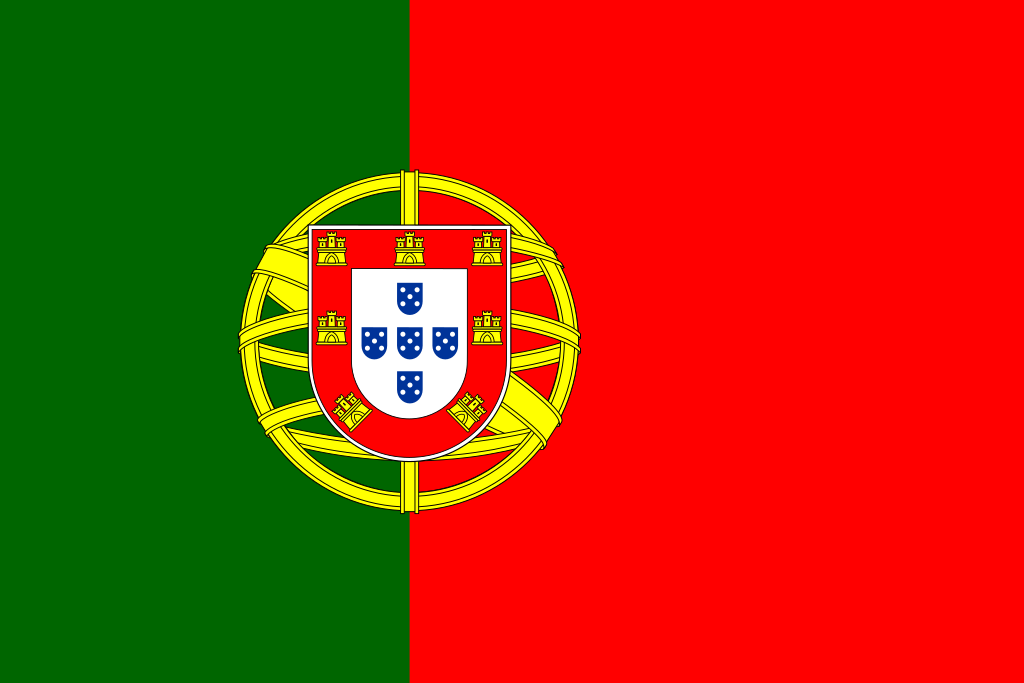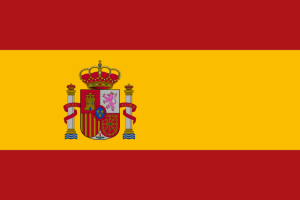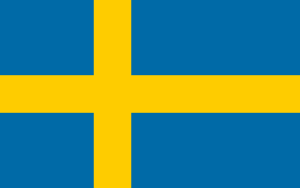Financial education in Portugal has been provided by private, profit (mostly financial institutions) and not-for profit (consumer associations and other civil society initiatives), institutions and by the Portuguese central bank.
Private initiatives are diverse, going from websites with financial glossaries, simulators and tips about savings, consume, credit and investment to educational projects implementation in and with schools, municipalities and third sector organizations. We give some examples below, but the contents and materials of these programs are not available to the public
The national strategy on financial literacy carried out by the Bank of Portugal is aligned with the best practices defined by the International Network on Financial Education, of whom the Bank of Portugal is a member since its creation, in 2008. The national strategy has, as its greatest exponent, the National Plan for Financial Education (Plano Nacional de Formação Financeira [PNFF]), the educational aspect of public intervention. However, there are other tools concerning financial information and counseling, namely:
– Bank Customer Website (Portal do Cliente Bancário)
https://clientebancario.bportugal.pt
Created in 2008 by the Bank of Portugal, it is an instrument of behavioral supervision that promotes information on the rights and duties of bank customers and discloses the rules that regulate the marketing of banking products and services, while also supporting the financial training of bank customers. Here we can find some useful tools and materials, as noted below.
– Municipal Consumer Information Centers (Centros de Informação Autárquica ao Consumidor [CIAC])
CIAC are local structures that result from protocols between the municipalities and the Directorate-General for Consumers. They constitute a solution of proximity and free support aiming at promote and assure consumers’ rights. The vast work of these entities in the area of consumption includes activities for the dissemination of financial information and the promotion of financial training actions addressed to specific audiences.
– Indebted Consumer Support Network (Rede de Apoio ao Consumidor Endividado [RACE])
https://www.consumidor.gov.pt/informacao-ao-consumidor2/rede-de-apoio-ao-consumidor-endividado.aspx
The entities of this network provide a support, information and advice to consumers who are at risk of defaulting on credit agreements or who, due to delays in fulfilling obligations arising from credit agreements, are inserted in a renegotiation process with the credit institution. Government aggregates and seals these entities on a network. They come from private and civil society initiatives.
National Plan for Financial Education (PNFF)
The PNFF was created in 2011 following the first national inquiry on financial literacy of the population. It is headed by the National Council of Financial Supervisors (Conselho Nacional dos Supervisores Financeiros [CNSF]) that include: the Bank of Portugal, the Portuguese Securities Market Commission (Comissão do Mercado de Valores Mobiliários [CMVM]) and the Insurance and Pension Funds Supervisory Authority (Autoridade de Supervisão de Seguros e Fundos de Pensões [ASF]). It frames and supports national initiatives and have as partners private, associative and academic institutions. For the period 2016-2020 it established as specific targets: kindergartner children, basic and secondary education students, university students, workers, vulnerable groups, entrepreneurs, business-owners and managers of SMEs, besides the population in general.
PNFF activities are developed through several axes. The majority of the projects are directed to basic and secondary education students and conducted at schools, promoted and implemented by teachers.
Is PNFF mission to:
– Establish the guiding principles of the national financial education strategy;
– Conduct surveys on financial literacy;
– Promote initiatives that bring visibility to the topic of financial education, as “Todos Contam” contest (encourages the development of financial education projects in schools) and Financial Education Day;
– Foster the Todos Contam website (www.todoscontam.pt), a portal for financial education that provides information in simple language on relevant topics for the management of personal finance and tools to support the most important financial decisions. The Todos Contam (Everyone counts) site is also a platform for sharing financial education content and initiatives developed under the Plan and by its stakeholders.
Concerning the promotion of knowledge, dissemination of financial informative materials and educative programs development, directed to ECDN requested points, PNFF provides:
- Useful tools
– financial glossaries and simulators https://www.todoscontam.pt/glossario/glossario (the simulators are presented by topic)
- Practical knowledge – “ready to use” material
– Videos and leaflets on various topics on the libraries of Todos Contam website
(https://www.todoscontam.pt/pt-pt/biblioteca; https://www.todoscontam.pt/pt-pt/biblioteca-junior; https://www.todoscontam.pt/pt-pt/biblioteca-formadores)
– E-learning platform on Todos Contam website: http://elearning.todoscontam.pt.
Launched in 2015, this platform aims to support the training of trainers and also support financial education initiatives for the general population, increasing the geographical coverage of the PNFF. Here we can find a set of classes and support materials on family budget, savings and investment, credit and insurance.
– Financial Education Notebooks
https://www.dge.mec.pt/cadernos-de-educacao-financeira
The PNFF is responsible for developing educational references that guide the implementation of strategies with different target audiences. There is already a benchmark for schools, divided by different levels of education, and a benchmark for companies. Although much of the work of teachers or trainers is based on materials collected and developed by themselves, the PNFF (in partnership with Financial Supervisors, the Ministry of Education and four associations in the financial sector) has developed the Financial Education Notebooks that aim to support trainers and trainees in addressing the themes defined in the financial education frameworks. They can be used in different curricular learning contexts, within the scope of classes, complementary offers or projects.
Other offers on ECDN points:
- Useful tools
– Financial glossaries and simulators on Bank of Portugal and Bank Customer websites
https://www.bportugal.pt/glossario/a
https://clientebancario.bportugal.pt/pt-pt/creditos-consumidores
– Financial glossaries and simulators on private and associative organizations websites (not associated with specific products)
https://www.asfac.pt/simulador (association of specialized credit institutions)
https://reorganiza.pt/category/glossario-financeiro/ (insurance mediation, credit intermediation and financial coaching company)
- Pratical knowledge
– Financial tips
https://www.asfac.pt/pagina/36/dicas_financeiras
https://www.cgd.pt/Site/Saldo-Positivo
https://gasdeco.net/perguntas-frequentes/
– “Ready to use” material
– Bank Customer Website material: https://clientebancario.bportugal.pt/pt-pt/materiais ; https://clientebancario.bportugal.pt/pt-pt/educacao-financeira-digital-para-jovens-o-que-e
– DECO (consumer association)
– DECOJovem (various topics, including financial management) https://decojovem.pt/
– DECO over-indebted support office brochure https://gasdeco.net/literacia-financeira/espaco-academico/outras-acoes/
– DECO on-line course O essencial da economia pessoal (The essentials of personal economy) http://moocs.decoforma.pt
– Manuals on the broader topic Consumer Education, on the website of the Consumer Directorate-General: https://www.consumidor.gov.pt/consumidor_4/educacao-ao-consumidor/manuais-para-professores.aspx
– Money Museum information and quiz
https://www.museudodinheiro.pt/museu/8/sabias-que
- Educational projects implemented among different age groups
As mentioned above, there are many actions taking place by private initiative (banks, credit intermediation companies), associations, non-profit organizations, local authorities, whose materials we do not have access to. They lack a systematic character, that is, they happen occasionally and respond to a specific need of a specific target audience.
– Most of the projects are aimed at children and adolescents to complete compulsory education (12 years of schooling, 6-18 years)
PNFF stands out, but there are other programs developed mainly in schools, which go beyond the use of didactic-pedagogical materials designed by PNFF:
DECO
https://decojovem.pt/como-aderir-a-decojovem/
http://www.facm.pt/facm/facm/pt/servico-educacao/educacao-financeira (António Cupertino de Miranda Foundation)
https://www.asfac.pt/pagina/62/aflatoun (AFLATOUN program implementation in Portugal, by ASFAC)
http://www.japortugal.org//educacao.html#
Finances for all (Finanças para Todos) – DECO Training for leaders and technicians of youth associations http://decoforma.pt/oferta-programas-abertos/formacao-financeira-para-todos-estudantes-jovens/
– Adults
https://www.apoiare.pt/formacao/pessoas-familias/ (Non-profit association for observation, research and support in debt re-education)
Finances for all (Finanças para Todos) – DECO Training for most vulnerable and economically unprotected consumers –http://decoforma.pt/oferta-programas-abertos/formacao-financeira-para-todos-consumidores-vulneraveis/
O PNFF tem parcerias com empresas e com o Instituto do Emprego e Formação Profissional
Finances for all (Finanças para Todos) – DECO Training for business employers and employees of micro, small and medium-sized enterprises http://decoforma.pt/oferta-programas-abertos/formacao-financeira-para-todos-pmes/
Where to read about financial measures to support families’ difficulties arising from the COVID 19 pandemic
https://gasdeco.net/literacia-financeira/
https://covid19estamoson.gov.pt (Government website, all the measures. Social and economics here: https://covid19estamoson.gov.pt/estado-de-emergencia-nacional/medidas-economicas-e-sociais/)
Financial tips for this period: https://reorganiza.pt/artigos



